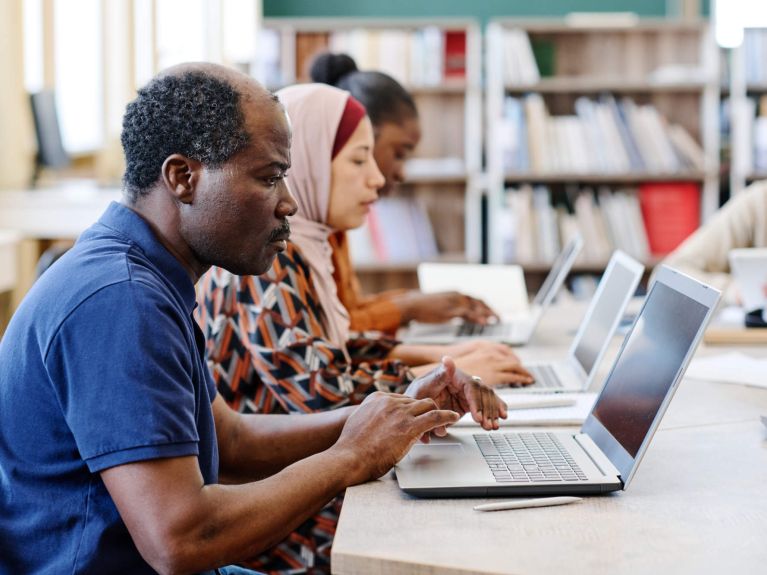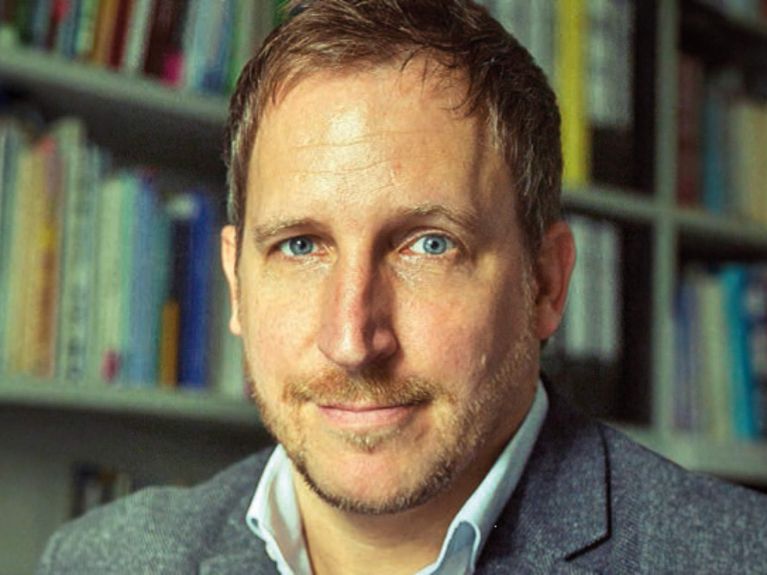An instrument for self-help
People with mental health problems often find it difficult to cope in a new country. An online point of contact offers some orientation in Germany.

Having suffered traumatic experiences such as war, violence and the need to leave their home land,refugees are particularly prone to mental disorders. They receive help in 48 psychosocial centres in Germany. The REFUGEEUM project provides an online point of contact forrefugees in Germany who are suffering from physical or mental health issues. Professor Mike Mösko, head of the Research Group on Migration and Psychosocial Health (MiPH) at the Medical Center Hamburg-Eppendorf, explains how the platform came about.

Professor Mösko, what support does REFUGEEUM offer refugees?
The basic idea is to give those affected the chance to find out about mental health problems in their native language and to provide them with self-help strategies. The project is thus an instrument for self-help and psychoeducation, that is to say the teaching of knowledge about mental illnesses.
How did the service come about?
The website was created during a one-semester practical project with master’s students in psychology at Universität Hamburg . They developed scientifically founded materials for mentally ill refugees. Furthermore, refugees were actively involved in creating the website. In the spring of 2016, 14 refugees from four countries took part in a block of seminars. Together with the students, they went through the draft texts, giving important feedback and suggesting improvements.
It is thanks to the great commitment of the students that the project has developed such huge positive momentum. The non-profit Hamburg association Seelische Gesundheit. Migration und Flucht e. V. (SEGEMI) has provided expert support to the project from the start and has managed the website in terms of technology and content since the end of the seminar.
What psychological care is available to refugees in Germany?
Most refugees with mental disorders receive help in one of the 48 nationwide psychosocial centres in Germany. They are organised under the umbrella of the BAfF, the German Association of Psychosocial Centres for Refugees and Victims of Torture. In addition, there are numerous regional initiatives and organisations that likewise offer psychosocial assistance. However, there is a shortage of professional interpreters; they are vital when it comes to providing comprehensive patient care.
As far as this problem is concerned, SEGEMI has achieved a very important milestone: in cooperation with the Hamburg Chamber of Psychotherapists, the Hamburg Medical Association and the Paritätischer Wohlfahrtverband, they have succeeded in setting up a model project that is unique in Germany. The Hamburg interpreting pool provides doctors and psychotherapists with free professional interpreters for the diagnosis and treatment of their patients.
This is a link to the REFUGEEUM website.


